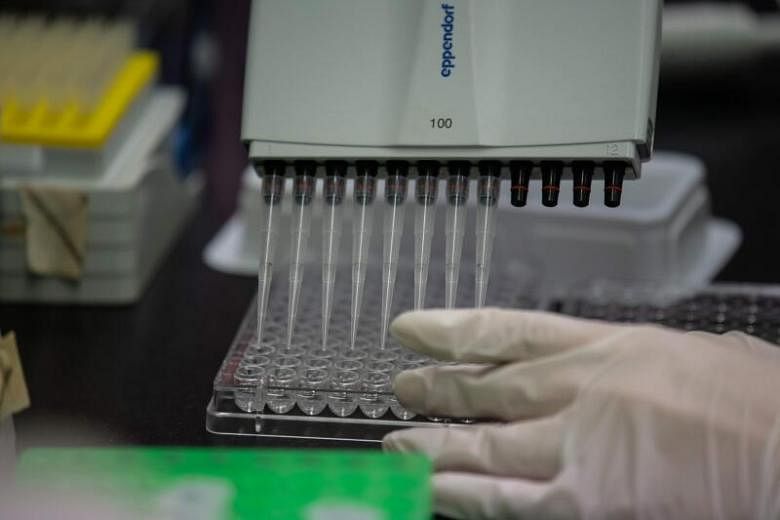SINGAPORE - As the global death toll from the Covid-19 pandemic inches towards the 20,000 mark, scientists all over the world are racing against time to develop vaccines against the virus.
Unfortunately, these vaccines may not work for those with poorer immune systems - such as cancer patients, and those with comorbidities, where they have more than one medical condition at the same time.
Local start-up Proteona announced on Wednesday (March 25) that it is forming an alliance with research teams from the United States and Germany which specialise in the fields of oncology, applied life sciences and material sciences, as well as single cell genomics and bioinformatics. Their goal is to develop an antibody treatment that can tackle a broad range of coronaviruses for these vulnerable individuals.
If successful, the treatment developed by the alliance will allow vulnerable patients to fight against not only the strain of coronavirus responsible for the outbreak now, but also future variants of the virus.
Dr Andreas Schmidt, chief executive of Proteona, said that with a growing global population and a changing climate, more variants of the coronavirus will spring up in the future.
Said Dr Schmidt: "We cannot have the same response each time, scrambling to create therapies and vaccines. Instead we must develop therapies that can not only help in the current crisis, but will also be available for the next one."
Vaccines work by triggering the body's immune response towards a certain pathogen so that when the same pathogen enters the body the next time, the immune system is able to summon its defences against it quickly.
Individuals with comorbidities or cancer have immune systems that are too weak to mount a defence against the virus, said Dr Schmidt, and they are therefore not ideal candidates to receive a vaccine.
Therefore, an alternative treatment such as the use of antibodies is "badly needed", he added.
The scientists intend to develop the treatment by looking at a particular type of immune cells - known as B-cells - in the samples of 20 patients from around the world who have recently recovered from the Covid-19 infection. B-cells are responsible for producing different types of antibodies, which in turn battle against different kinds of pathogens.
By studying the gene and protein expressions of individual cells, the team will then be able to single out those which produce antibodies targeting coronaviruses in particular. This is done using Proteona's single-cell sequencing platform, which is able to do it for thousands of cells within five days.
The process allows the team develop an antibody treatment - which would likely be administered intravenously - that can fight against different types of coronaviruses.
Dr Schmidt noted that it is because of the efforts of the front-line healthcare workers and the Singapore Government that companies like Proteona can undertake this work in Singapore, while many labs in other parts of the world have been shuttered.
"We invite all companies in the region to join with us in our quest to create the next wave of antiviral therapies," he added.












